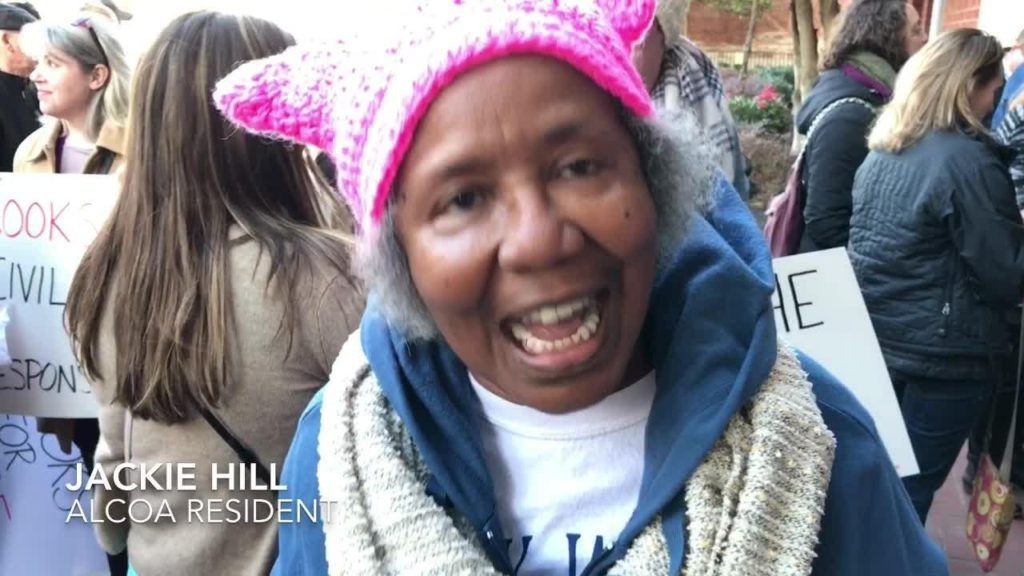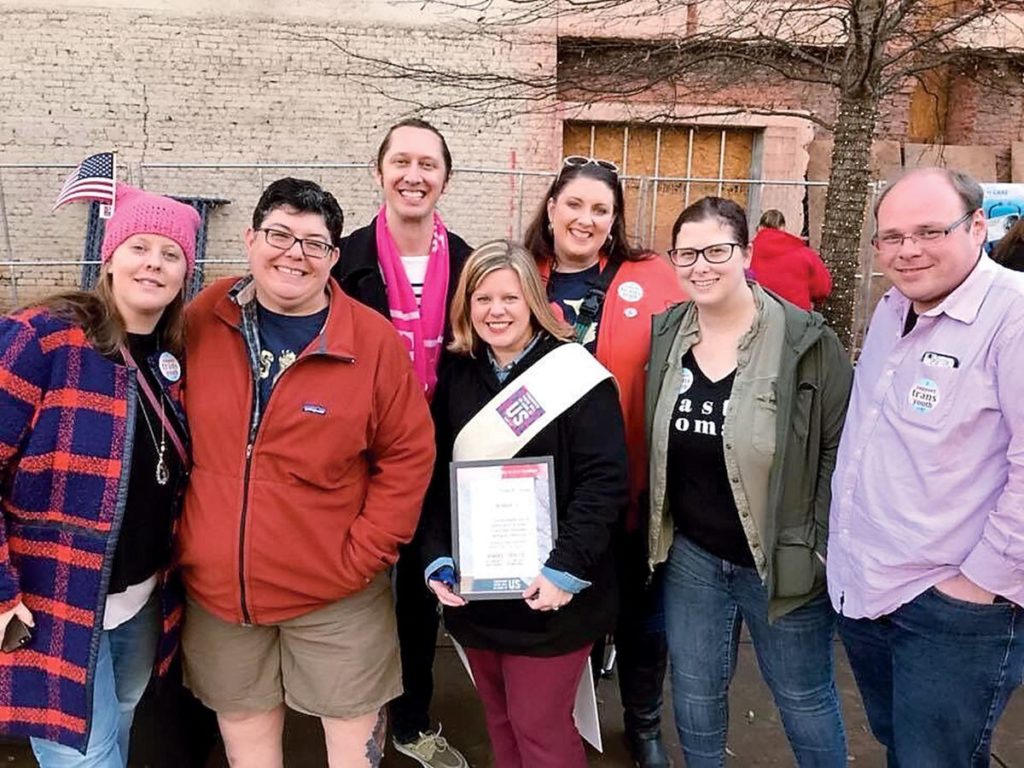Trouble in Paradise? (Part 4)
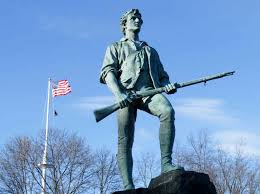
A sentinel is like a sentry; it stands guard. When I started this Facebook page a couple of months ago, I posted several introductory essays, entitled Trouble in Paradise? (Parts 1-3). They can be found here, here, and here. My goal is to warn Blount County residents about threats to their idyllic community. We may think we are insulated from the “progressive” lunacy plaguing places like New York City, Minneapolis, Seattle, and Portland, but radical policies will take root anywhere they find a congenial environment. All it takes is an inattentive populace, lax elected officials, an activist press corps, and a handful of radical agitators in the community committed to “transformative change.” (It is no coincidence that “transformative change” is the campaign slogan for a leftist candidate seeking a seat on the Maryville City Council.)
Bad things could happen, even in Blount County, if residents do not remain vigilant.
Part 4 focuses on some concerning developments at the Blount County Public Library (BCPL), a wonderful facility that Blount County residents should be proud of. After all, it was built, and operates, with your tax dollars. As I will describe in greater detail below, something is amiss at the BCPL. In certain respects, the BCPL is not receiving the degree of oversight that a taxpayer-funded enterprise of its magnitude warrants. Don’t get me wrong; I am not attacking the BCPL overall, or its staff overall. Libraries are important, and the BCPL is an asset to the community. That is precisely why proper oversight is so vital. I offer three cautionary observations.
1. I recently posted on Blount County Conservative Sentinel about a “book list” on the BCPL’s website on the subject of “Anti-Racism Resources.” The list may have been created by a BCPL employee named Ariel Baker, who is identified on the BCPL website as an Education Services Manager. The “Anti-Racism Resources” list consists of 51 items, mainly books. Calling the list “anti-racism” resources is a misnomer, because the theme of many of the titles is anti-white polemics. For example, the curated materials include The Autobiography of Malcolm X, written by a black separatist who preached hate against white people and–in contrast to the Rev. Martin Luther King–espoused violence to effect change.
Other controversial books “recommended” for reading by the BCPL (and there is no way to interpret a list of books selected by library staff as anything but a recommendation) are Howard Zinn’s A People’s History of the United States. Zinn was a Marxist propagandist whose baseless fabrications have been refuted by serious historians. Mary Grabar devoted an entire book to this effort, entitled Debunking Howard Zinn: Exposing the Fake History That Turned a Generation against America. Historian Wilfred McClay’s acclaimed survey text, Land of Hope: An Invitation to the Great American Story, was written in part as an antidote to Zinn’s lie. I wonder if the BCPL has either of these books in its collection. (That’s a rhetorical question; I’m confident the answer is “no.”)
At the heart of the BCPL’s “Anti-Racism Resources” list are two titles that epitomize the toxic ideology of identity politics and critical race theory: Robin DiAngelo’s White Fragility and Ibram Kendi’s How to be Anti-Racist. These books teach that all whites are inherently racist, that American society is systemically racist, and that “racism” can only be overcome when end-result equality is reached in all spheres of life. It is a radical and anti-free market point of view. Space does not permit a detailed rebuttal; nor is any required. Here is Kendi in his own words:
To fix the original sin of racism, Americans should pass an anti-racist amendment to the U.S. Constitution that enshrines two guiding anti-racist principals [sic]: Racial inequity is evidence of racist policy and the different racial groups are equals. The amendment would make unconstitutional racial inequity over a certain threshold, as well as racist ideas by public officials (with “racist ideas” and “public official” clearly defined). It would establish and permanently fund the Department of Anti-racism (DOA) comprised of formally trained experts on racism and no political appointees. The DOA would be responsible for preclearing all local, state and federal public policies to ensure they won’t yield racial inequity, monitor those policies, investigate private racist policies when racial inequity surfaces, and monitor public officials for expressions of racist ideas. The DOA would be empowered with disciplinary tools to wield over and against policymakers and public officials who do not voluntarily change their racist policy and ideas. (Emphasis added.)
This sounds like something out of George Orwell, with the addition of Kurt Vonnegut’s Harrison Bergeron. Critics have savaged both Kendi and DiAngelo. Here is just one example, from The New Criterion:
DiAngelo regards all nonwhite people, ex officio, as being incapable of exaggeration or unjustified self-pity, let alone of lying. As well as being sycophantic, this is, to coin a word, racist, for one of the most important manifestations of free will, and therefore of humanity itself, is the capacity to lie. In effect, then, she regards “people of color” as infra-human truth-uttering mechanisms: they speak, therefore what they say is true. No critical faculties need be applied to what they say.
By demonstrating how bad a person she is, DiAngelo demonstrates how good a person she is. A story that she relates towards the end of her book illustrates to perfection her self-satisfaction and moral grandiosity that masquerade as confession of sin.
In other words, DiAngelo is marketing virtue-signaling to gullible audiences (like some other “diversity consultants” hustling locally in Blount County). The BCPL should not be endorsing or propagating such divisive and racist positions.
To be clear, I am not advocating censorship or book-burning. Libraries are supposed to be neutral—offering different points of view. That said, library resources are finite, and the BCPL—unlike the Library of Congress—can’t have copies of every book. Choosing titles means that some books will be purchased and others not. Blount County residents must have confidence that these decisions are made responsibly, and not by social justice warriors with a political agenda. And in no event should the BCPL be endorsing or recommending anti-American propaganda and books spewing anti-white racism.
The “Anti-Racism Resources” list should be taken off the BCPL’s website, and measures should be adopted to ensure that left-wing employees not push their ideology on unsuspecting readers in the future.
2. The Blount County Friends of the Library (“BCFOL”) is an independent, non-profit organization that exists to raise money for the BCPL. Again, I do not dispute that most of BCFOL’s activities are commendable and worthwhile. But the leadership of BCFOL is very unbalanced—tipping decidedly to the Left. The BCFOL’s Board of Directors is populated with local activists, including Lisa Misosky (the LGBT activist who hosts Drag Queen Bingo at her restaurant, The Bird & The Book) and Vandy Kemp (a school board candidate endorsed by the Blount County Democratic Party). The author of the “Anti-Racism Resources” list is one of the BCPL’s Library Liaisons to the BCFOL.
The BCFOL recently launched a Community Market on the grounds of the BCPL, on Saturday mornings and Wednesday afternoons. The BCFOL’s Community Market directly competes with the longstanding Maryville Farmers’ Market, held in downtown Maryville. Why would the BCFOL wish to initiate a competing market, and why would the Board of Trustees of the BCPL approve it? The Community Market was proposed as a fundraising opportunity for the BCFOL (a portion of the vendors’ profits would be contributed to BCFOL) that would not compete with the Farmers’ Market because the Farmers’ Market allegedly sold only produce, and the Community Market would sell other types of items.
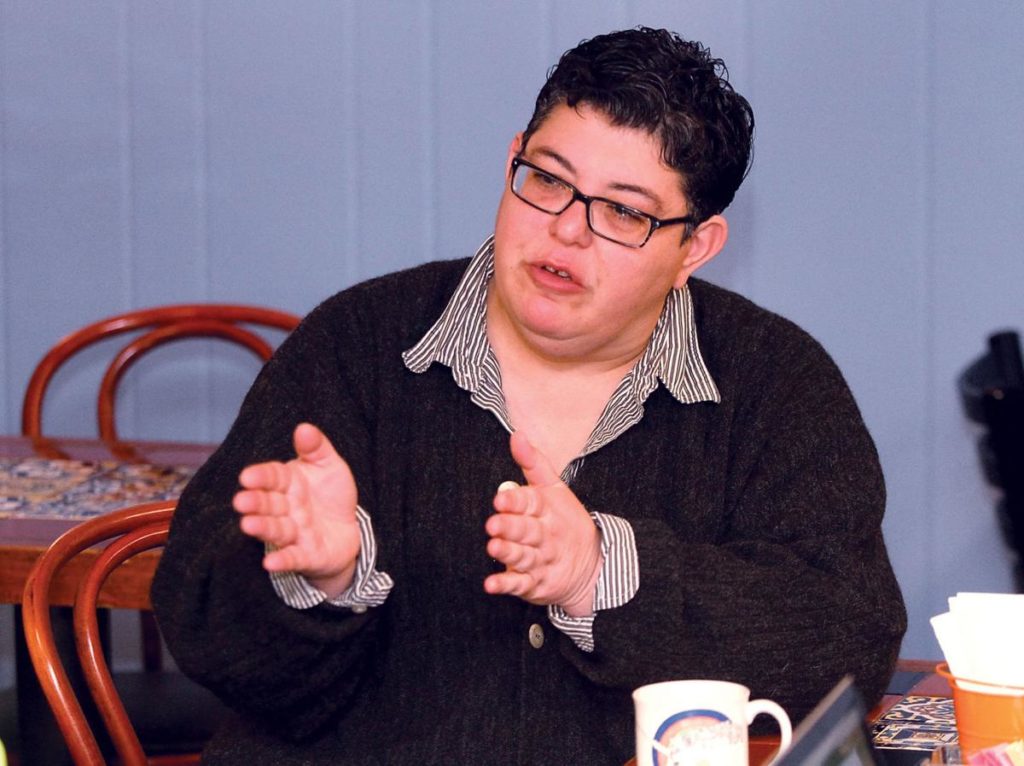
In fact, the “business plan” for the proposed Community Market submitted by the BCFOL to the BCPL Board of Trustees prior to the Board’s approval stated as follows:
We would not be competing with the Maryville Farmers Market, as we would be catering to different vendors and different audiences. For example, the Maryville Farmers Market is currently produce only and we would operate as more of a community gathering, where people will sell things ranging from pottery to books to more specialized treats like honey and mushrooms. We would not operate as a farmers market and we will advertise accordingly. (Emphasis added.)
This claim was false. The Farmers’ Market sells produce and some non-produce items (flowers, jams, honey, fish, meat, chicken, some craft items), and the Community Market also sells produce and non-produce items. The June 16, 2020 minutes from the BCPL Board of Trustees meeting indicate that the Community Market proposal was approved based on the false business plan. Moreover, the Community Market’s Facebook page describes itself as a “community-focused market that unites farmers and artisans,” and as a “farmers market.”
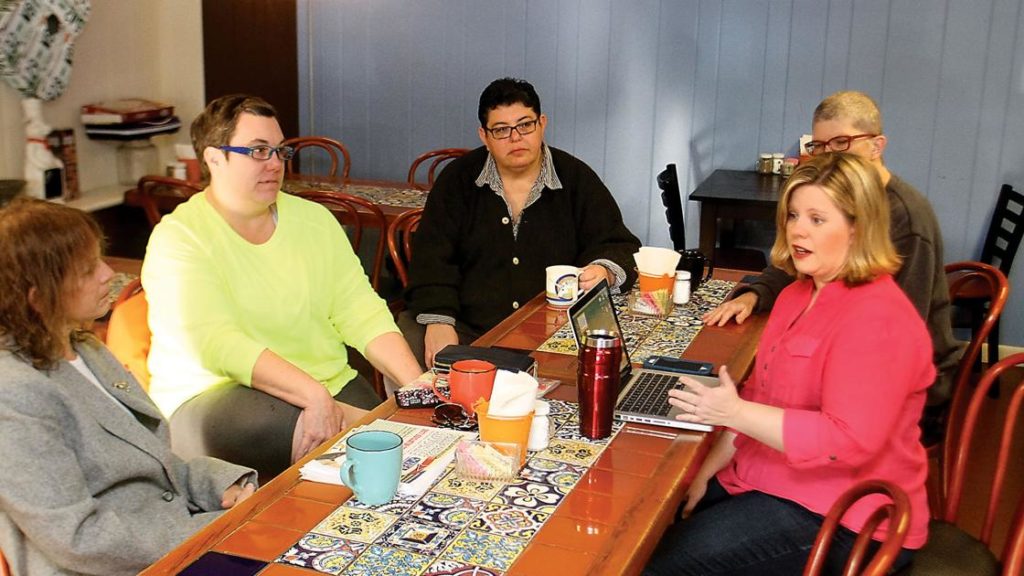
What was the real motive for the BCFOL Community Market? BCFOL Vice President Lisa Misosky, proprietor of Southland Books and Café in Maryville (and The Bird & The Book), has been hit hard by the Covid-19 pandemic, as many local businesses have. Earlier this year, the Chair of the Blount County Democratic Party organized a GoFundMe campaign to help Southland Books, explaining that:
This isn’t just a small business – it’s family. For years, Southland Books & Cafe has provided a place for marginalized groups, activists and Democrats to meet for FREE. When Southland owners opened The Bird & The Book, they provided a place for large gatherings and organized events like Blount County’s first Pride Day. From free space to catering discounts, they’ve been generous in so many ways. Now it’s our turn to give back. They are working hard to overcome the impact the coronavirus is having on their small business, but as more and more customers adhere to social distancing and practice self-isolation to prevent the spread of COVID-19, the financial challenges could be devastating. (Emphasis added.)
Lisa Misosky used to be a vendor at the Maryville Farmers Market but had a falling-out with the leadership of that organization. In April, Misosky began selling her goods outside her business, on a curbside basis, although her East Maryville location is off the beaten path. With her Southland Books and Café sidelined due to Covid-19, my theory is that the Community Market was instigated (perhaps by her) as an alternative outlet for her (and her progressive allies) to sell merchandise in a highly-visible location on public property, paid for and maintained by the taxpayers. Southland Books is one of the vendors doing business at the new Community Market.
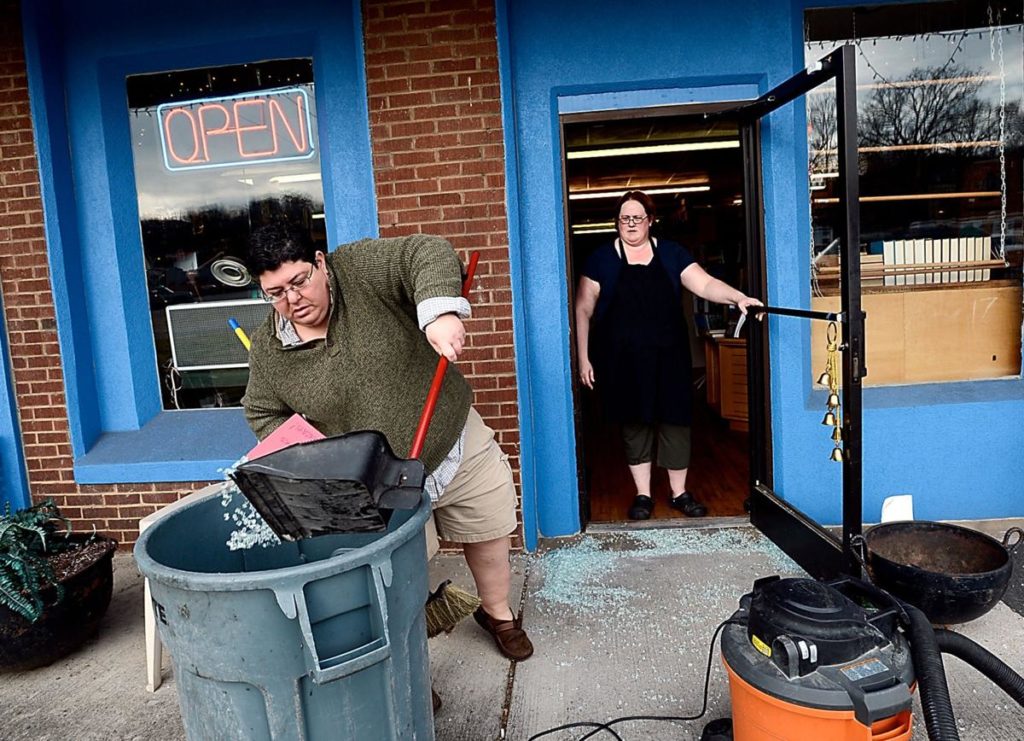
If my theory is correct, the clueless Board of Trustees of the BCPL got snookered by Lisa Misosky and her buddies on the BCFOL Board to allow Southland Books and kindred vendors to compete against the long-established, “official” Farmers’ Market, drawing away potential customers during a trying time for local farmers and craftsmen. Does this sound like it is in the public interest? Or does it sound like a sweetheart deal for the benefit of insiders?
3. Blount County is a conservative area. Most of the county-wide elected officials are Republicans. The Mayor of Maryville, Tom Taylor, is a Democrat, although officially the position is non-partisan. A majority of the Blount County Commissioners are Republican, although some individual Commissioners are Democrats (and some are quite liberal). The Blount County Mayor, Ed Mitchell, is a Republican. Most of the members of the BCPL Board of Trustees (one of whom is Commissioner Dawn Reagan) are appointed by Ed Mitchell. Unfortunately, the BCPL Trustees are not elected. According to Tennessee law, the BCPL Board of Trustees “has the power to direct all the affairs of the library, including appointment of a librarian.” The BCPL Board of Trustees is only indirectly accountable to the voters. We rely on County Mayor Ed Mitchell to make sound appointments to this important body.
As explained in items 1 and 2 above, the BCPL needs better—and more rigorous—oversight. Blount County residents deserve better representation on the BCPL Board of Trustees. Someone is asleep at the switch. We need to hold someone accountable for the poor performance of the BCPL Board of Trustees. Voters expect officials to be committed, attentive, and public-minded. Right now the management and oversight of the Blount County Public Library appear to be lacking. I call on Blount County Mayor Ed Mitchell–who chose many of the derelict Board members–to address this situation.
